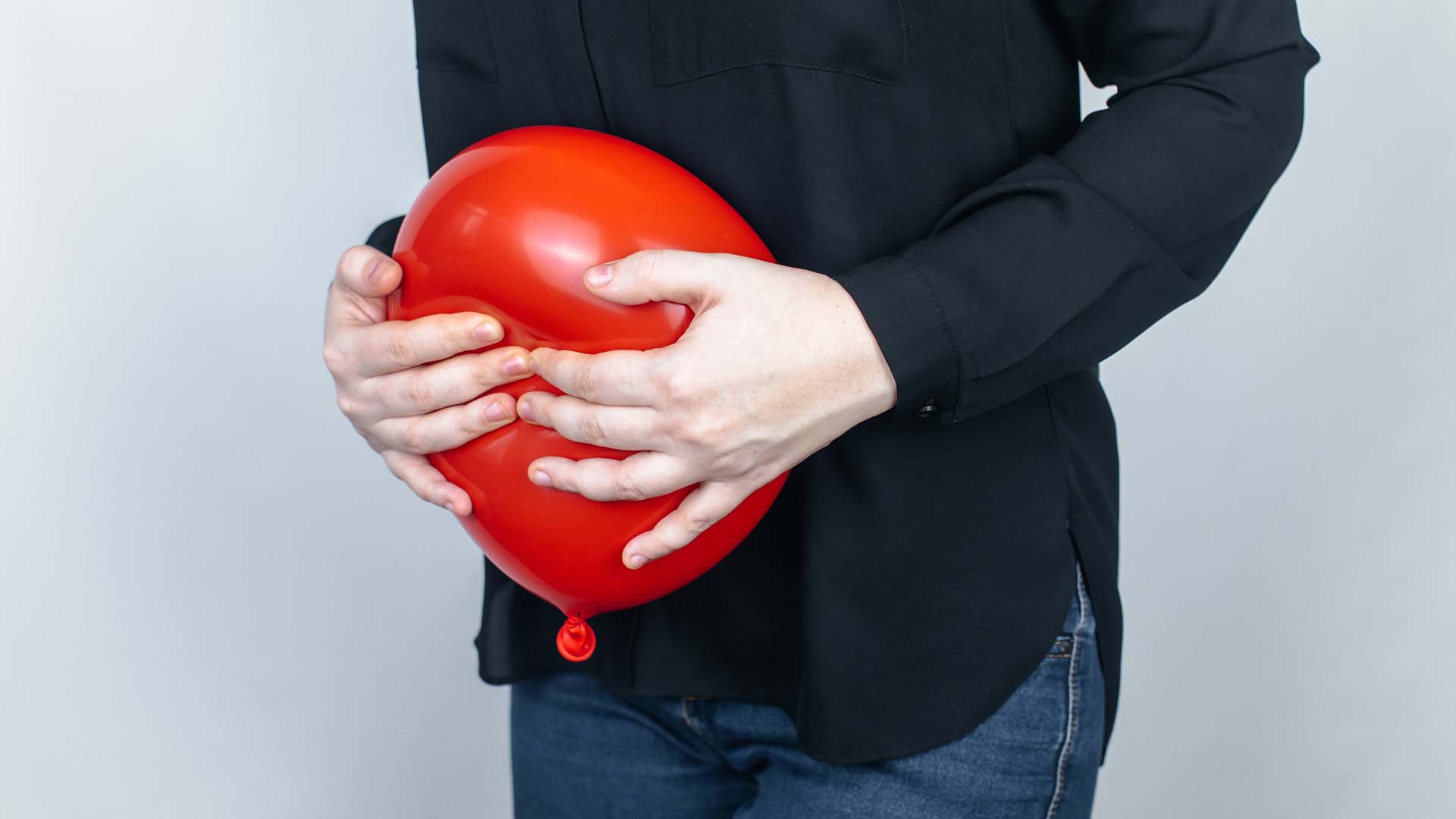Your stomach feels as if it’s been inflated by a bicycle pump as your trousers uncomfortably tighten around your waist. But you can’t quite put your finger on the cause.
Sound familiar? You’re not alone, as bloating is common and affects around 10-25% people on an occasional to regular basis.
And if you have irritable bowel syndrome (IBS), you’re probably experiencing it more often, with up to 90% of people with the condition regularly feeling bloated. If your stomach feels full or bigger than usual, is making noises, or you have stomach pain or discomfort, or are farting more than usual, these are all signs that you could be bloated.
The most common reason is too much gas in your gut due to certain foods that cause bloating, as well as swallowing air when you eat.
The good news is that there are things you can do to ease it, including choosing gut-healthy foods. If you’re struggling with bloating, it’s best to consult a dietitian before making changes to your diet.
The exact connection between intestinal gas and bloating s yet to be fully understood, as many who experience bloating don’t have any more gas in their intestine than others.
But registered dietitian Tamara Duker Freuman – also known as the “bloated belly whisperer” – says: “Bloating is usually a result of a build-up or abnormal handling, by nerves or muscles, of substances passing through the digestive system.”
These substances are typically:
It’s not just about what we eat but the way in which we eat and how much we eat, too. Eating or drinking too fast or talking while you eat may cause you to swallow excess air, which can lead to bloating.
“Feeling overly full after a large meal can affect bloating,” adds Freuman.
It's not just foods that cause bloating; stress, digestive issues or certain medical conditions can also be responsible for it.
Freuman says: “Bloating is not one size fits all and there are no single solutions, triggers or causes for all people.”
You should also consult your GP if you feel bloated a lot or it doesn’t go away.
Specific foods often contribute to bloating, although foods that cause bloating for one person might not for someone else.
Prebiotics are often recommended for gut health, but not everyone finds them beneficial.
Inulin, a type of soluble fibre that is usually extracted from chicory root, is a prebiotic often added to processed foods such as cereals and cereal bars.
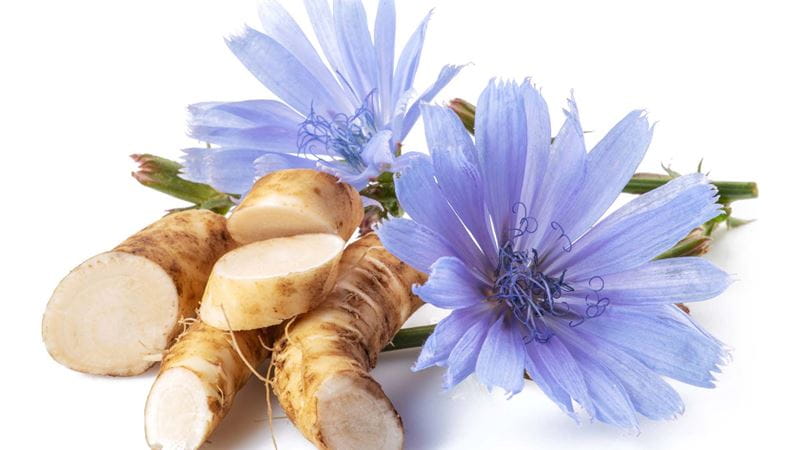
It “can contribute to excess gas in the bowel and, in turn, bloating”, says Freuman. The same kind of fibre is found in Jerusalem artichokes, which is why these vegetables are well-known for causing farting.
Bear in mind that fibre is an important part of a balanced diet, and most of us don’t get as much fibre as the recommended amount. This can cause problems, too.
Cristian Costas Batlle, registered dietitian at City Dietitians, says processed foods that have little fibre can slow down the digestion of food, potentially leading to constipation and resulting in bloating.
Swap for: unprocessed or minimally-processed foods such as fruit, vegetables, milk, fish, pulses, eggs, nuts and seeds that have no added ingredients.
Try switching cereal for unflavoured porridge oats. You can always top with berries to add some flavour.
Ever eaten a delicious chickpea, lentil or bean curry and felt uncomfortable afterwards?
“Some people [particularly those with IBS] may feel bloated after eating these pulses as they can be more gas-producing,” says Costas.
“This is because they contain a group of fermentable sugars – also known as fermentable oligosaccharides, disaccharides, monosaccharides and polyols (FODMAPs) – which ferment in the colon and can draw more air and water into the bowel.”
FODMAPs are not completely digested in our intestines, and this is the case for people without IBS, too.
The difference is that “people with IBS can also have visceral hypersensitivity. This is a reduced threshold for tolerating pain and discomfort in response to changes in the gut, meaning they may experience more symptoms of bloating”, explains Costas.
Swap for: fruits and vegetables lower in FODMAPs, such as kiwis, oranges, melon, aubergine, carrots and potatoes.
Again, onions contain higher amounts of poorly digested FODMAPs, with 60% of participants in a study reporting onion to be the most frequent trigger for their IBS symptoms.
Garlic and apples are also higher in fermentable carbohydrates and a common trigger.
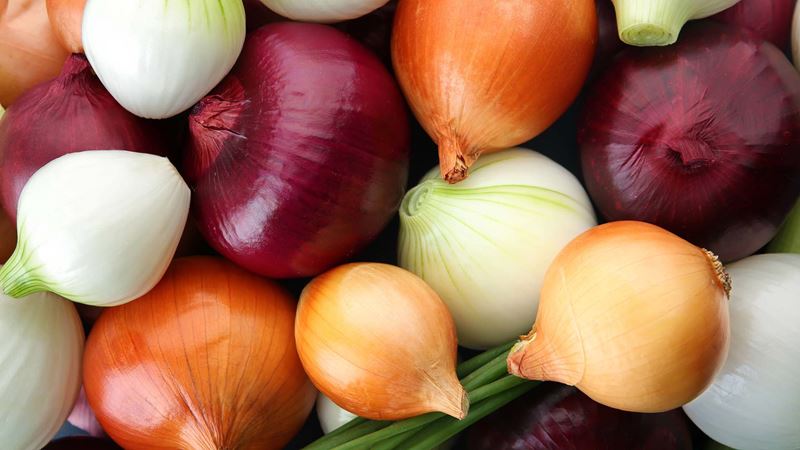
Despite this, Freuman says: “Many healthy foods fall into this category, and it is neither necessary nor advisable to avoid all foods that cause bloating.”
Instead, you can try out the Monash University FODMAP Diet app, available on Apple and Android, which shows you how much is a safe amount to eat of foods higher in FODMAPs, as well as low-FODMAP alternatives.
Swap for: the green parts of spring onions or chives are lower in FODMAPs and make for a good flavour substitute in cooking.
Minty-fresh flavours might be good for your breath, but is chewing gum doing any favours for your gut?
Freuman says: “Chewing gum can cause people to swallow excess air, which can become trapped in your digestive system and cause bloating.”
Costas adds: “Most sugar-free gums contain highly fermentable sugars like sorbitol or mannitol as sweeteners. This creates gas in the intestines and can cause bloating and discomfort.
"Not everyone needs to fully avoid it, but it is worth considering reducing or stopping if it’s a habit.”
Swap for: a sprig of parsley. This herb even reduces bloating and can help to freshen your breath just as well.

You might be surprised to see this nutritious leafy green vegetable on the list. However, Freuman says having a lot of it might make you feel overly full due to it being rich in fibre. This can lead to bloating.
Kale is part of the cruciferous vegetables group and other members, including broccoli, Brussels sprouts and cabbage, can also contribute to bloating due to the sugars they contain.
Swap for: spinach, courgette, cucumber or asparagus. Or sauté the kale; raw vegetables can be harder to digest than when cooked.
Don’t pour your glass of sparkling water away just yet! While many of us associate bubbly fluids with bloat, this is not the case for everyone.
Freuman says: “Fizzy drinks may cause bloating if gas in drinks makes you feel overfull, but sometimes they can alleviate bloating by triggering burping, which helps release trapped air from the stomach.”

Sugary drinks may only cause bloating in people who are unable to properly absorb the sugars (such as sucrose and fructose) that they contain, according to Freuman.
Costas adds: “Fruit juices may also play a part in bloating due to releasing a high number of fruit sugars into our digestive system at one time.”
Meanwhile, “Alcohol may cause bloating in people susceptible to acid reflux,” says Freuman.
“Beer is also a source of fermentable carbohydrates and could cause bloating for people who find similar carbs in wheat, onions and garlic to be problematic.”
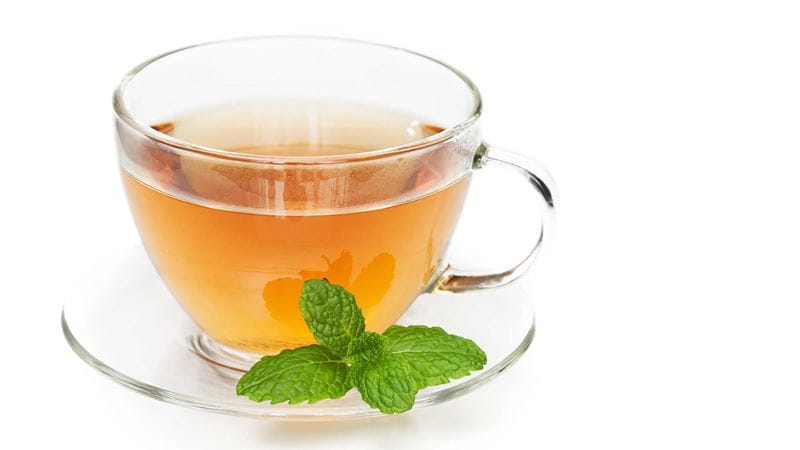
Swap for: water or peppermint tea. “Peppermint tea can help reduce bloating from overfullness. However, putting more inside you, even liquids like tea, when you are overfull, could aggravate the problem,” says Freuman.
“Drinking through a straw causes you to swallow more air, which can contribute to bloating too,” says Costas.

Depending on the cause, different remedies may be needed to get rid of bloating. Here are some simple things you can try to alleviate symptoms.
Gemma Harris has been a journalist for more than seven years and is a self-confessed health and wellbeing enthusiast, which led her to specialise in health journalism. During her career, she has worked with top editors and publications in the industry.
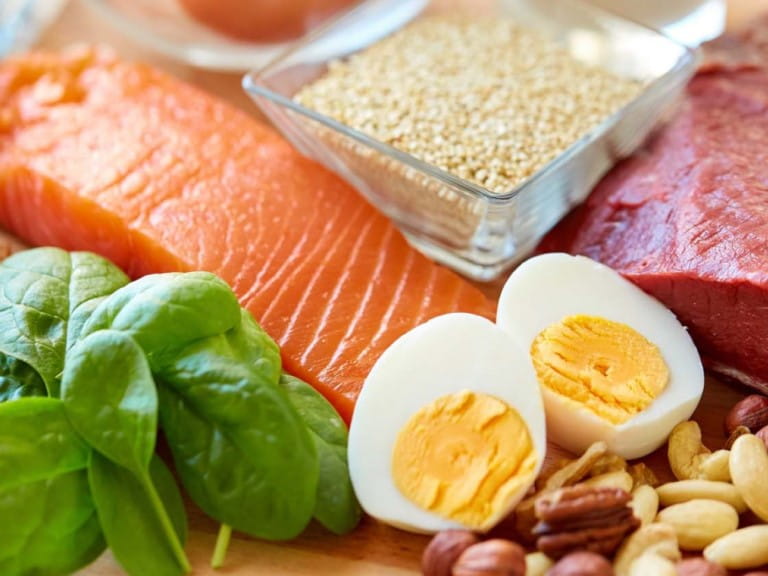
Everything you need to know about protein, from what it does for your body to the best high protein foods – and how much you really need.


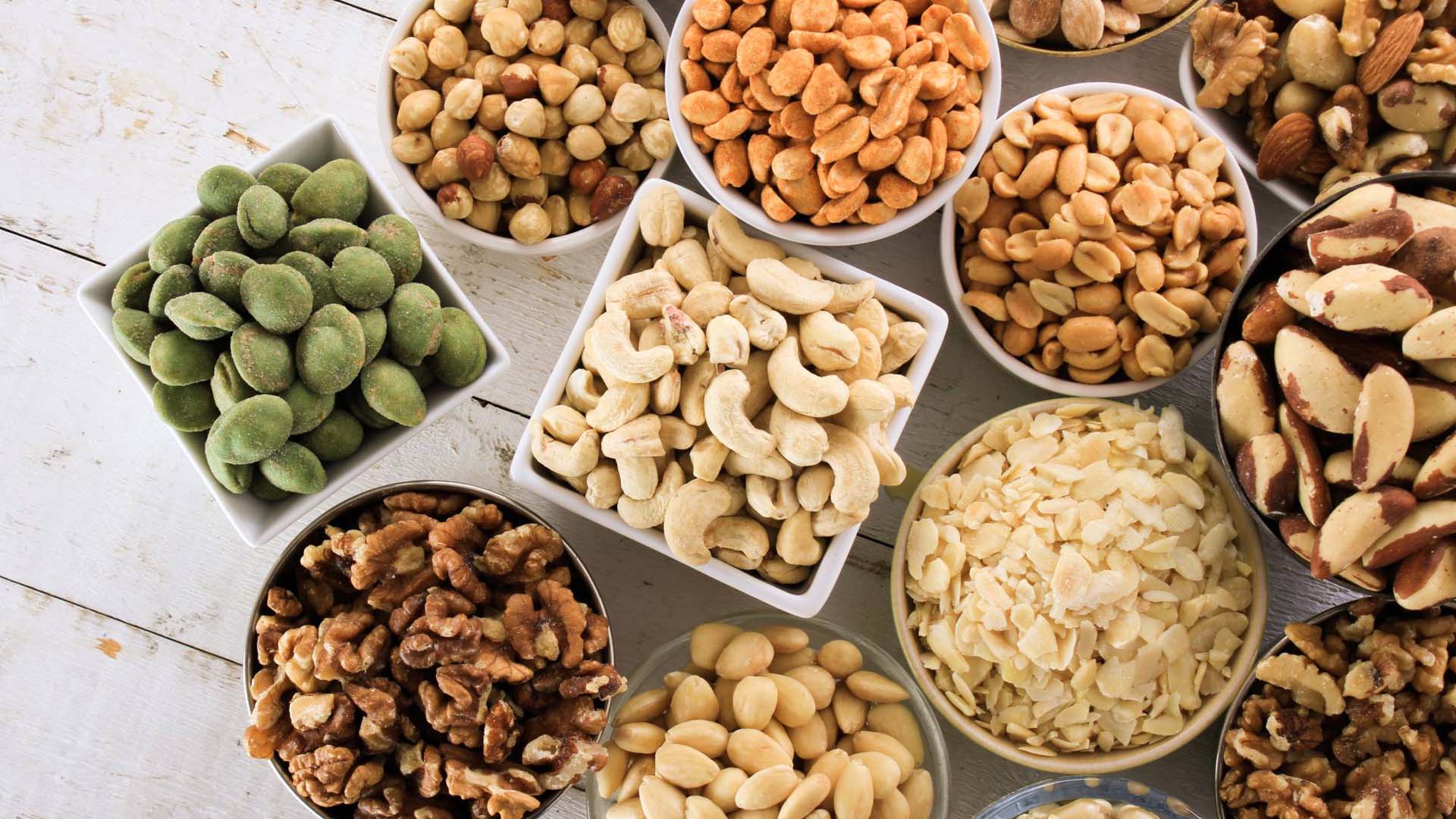
Let’s roast the myths! Not only are nuts less fattening than once feared, research shows they can cut the risk of heart disease too
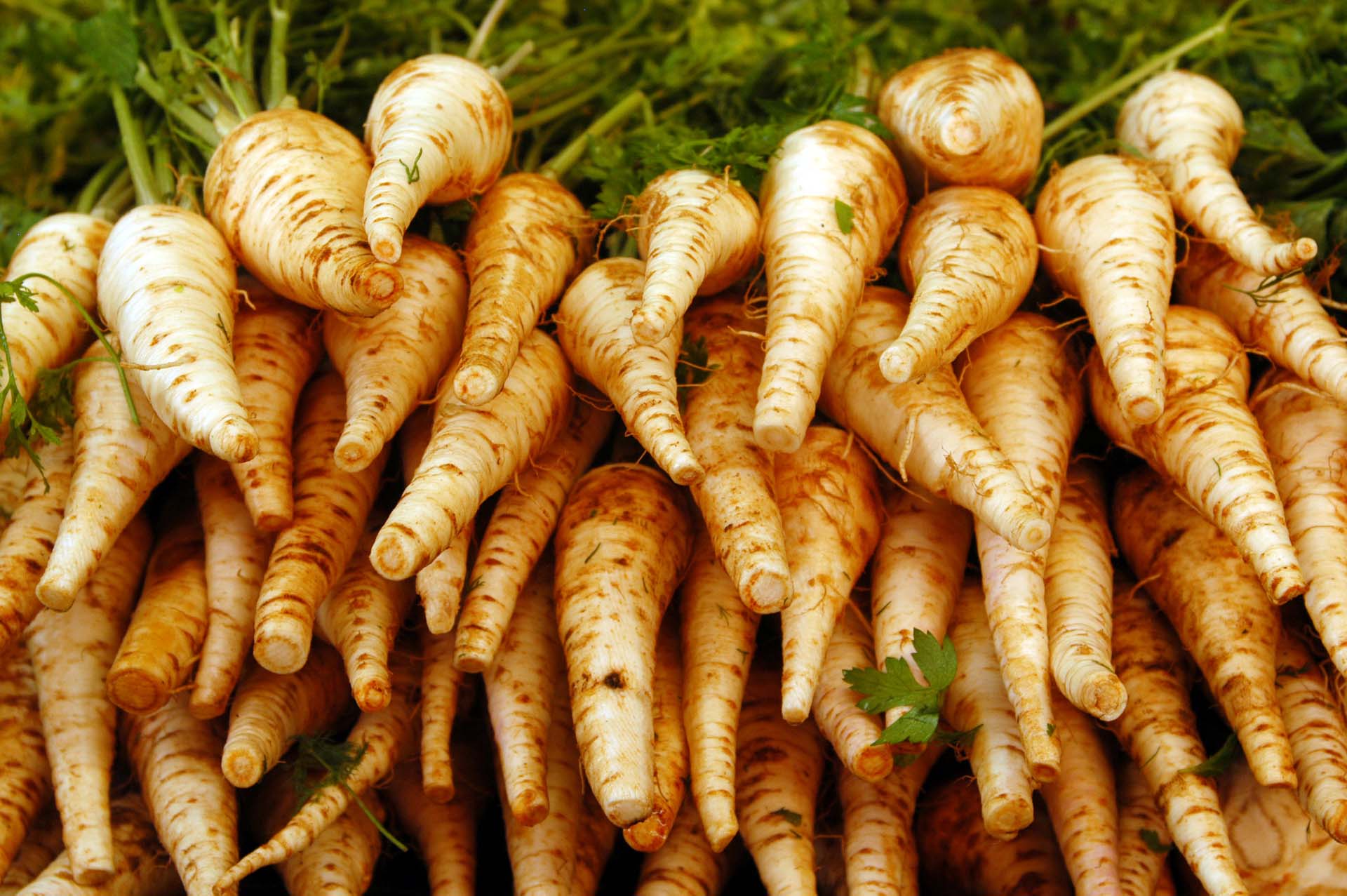
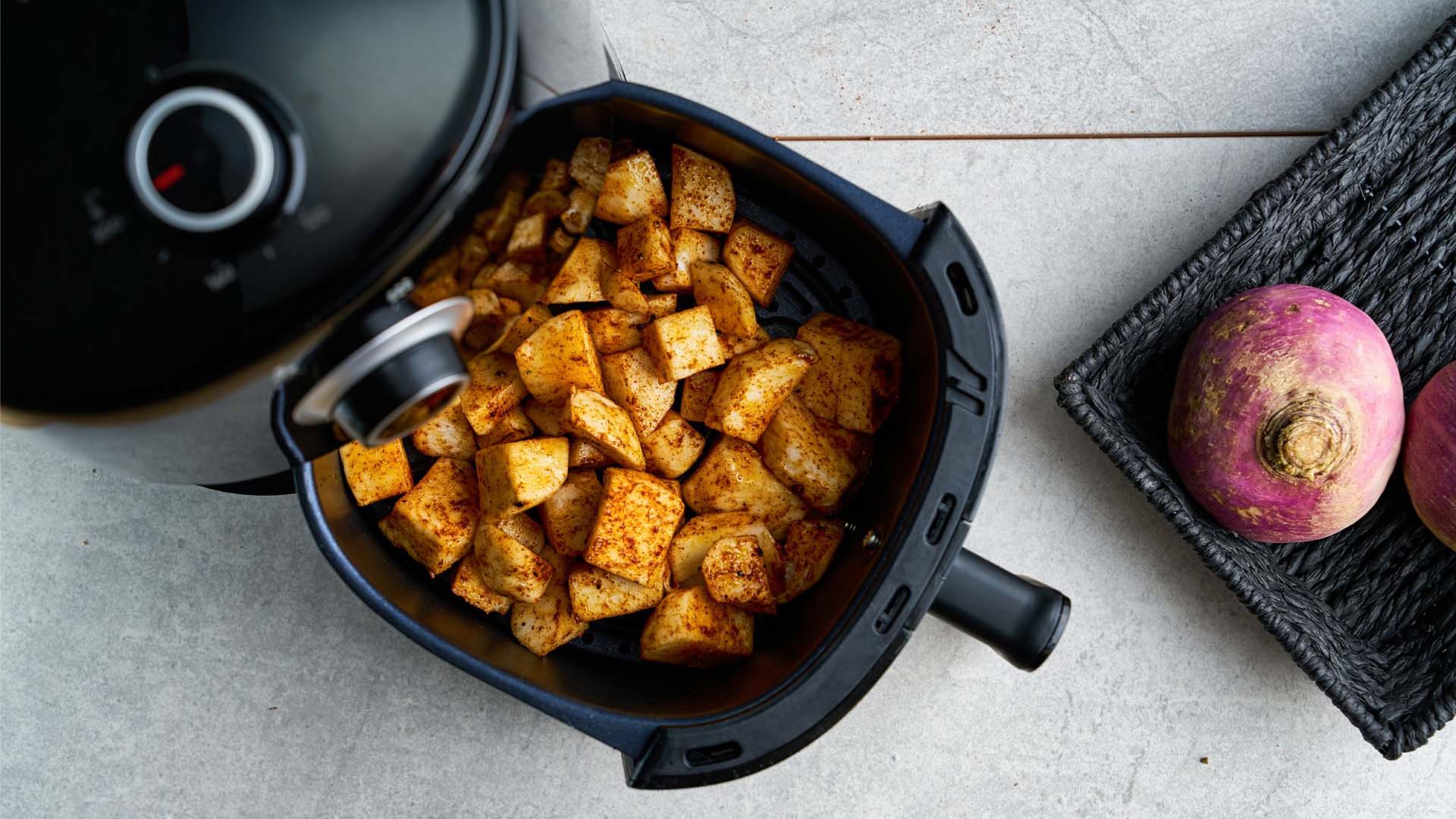
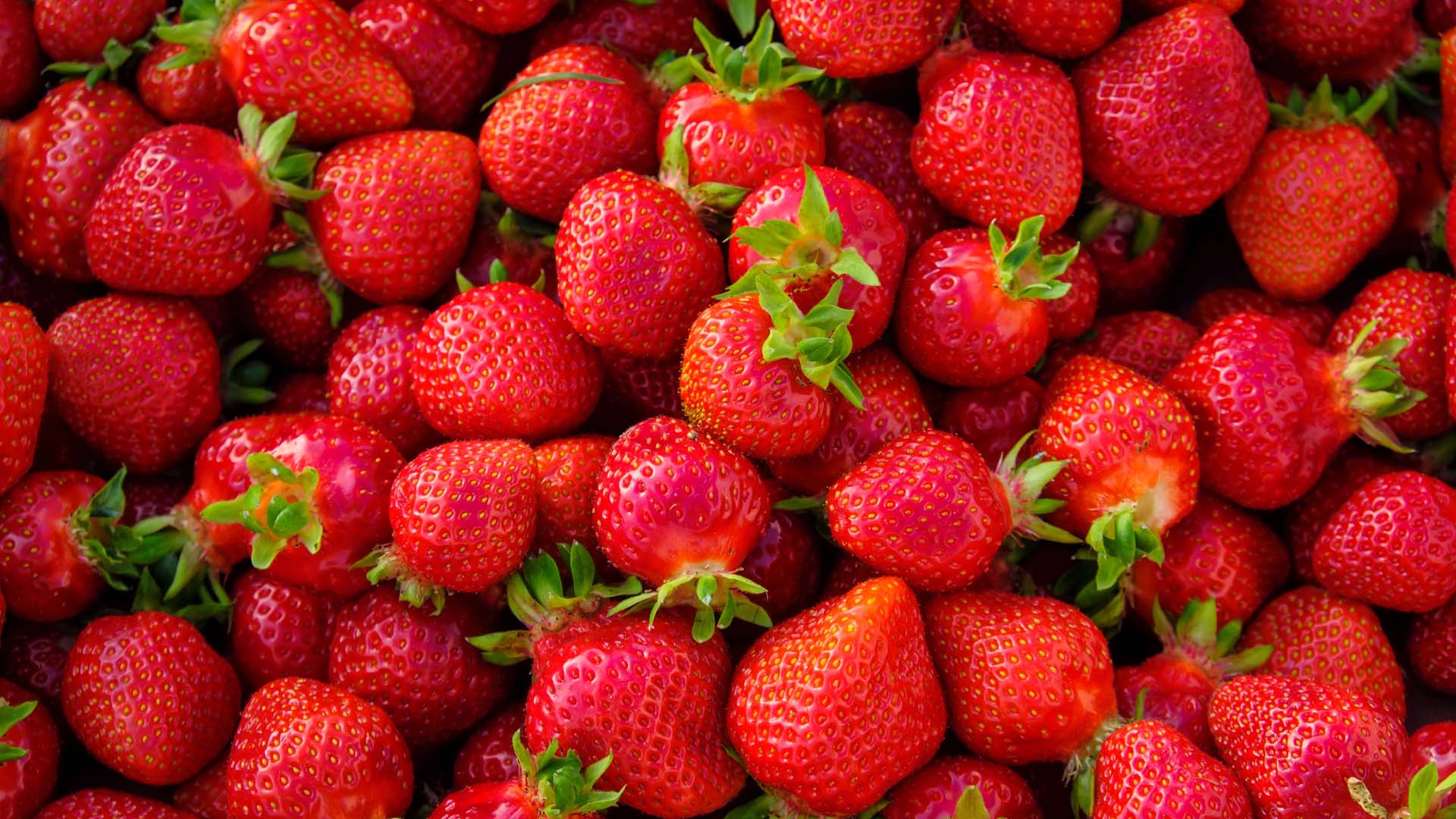
Strawberries don't just taste and look great, they are full of fibre, help your heart health and may even stave off dementia.
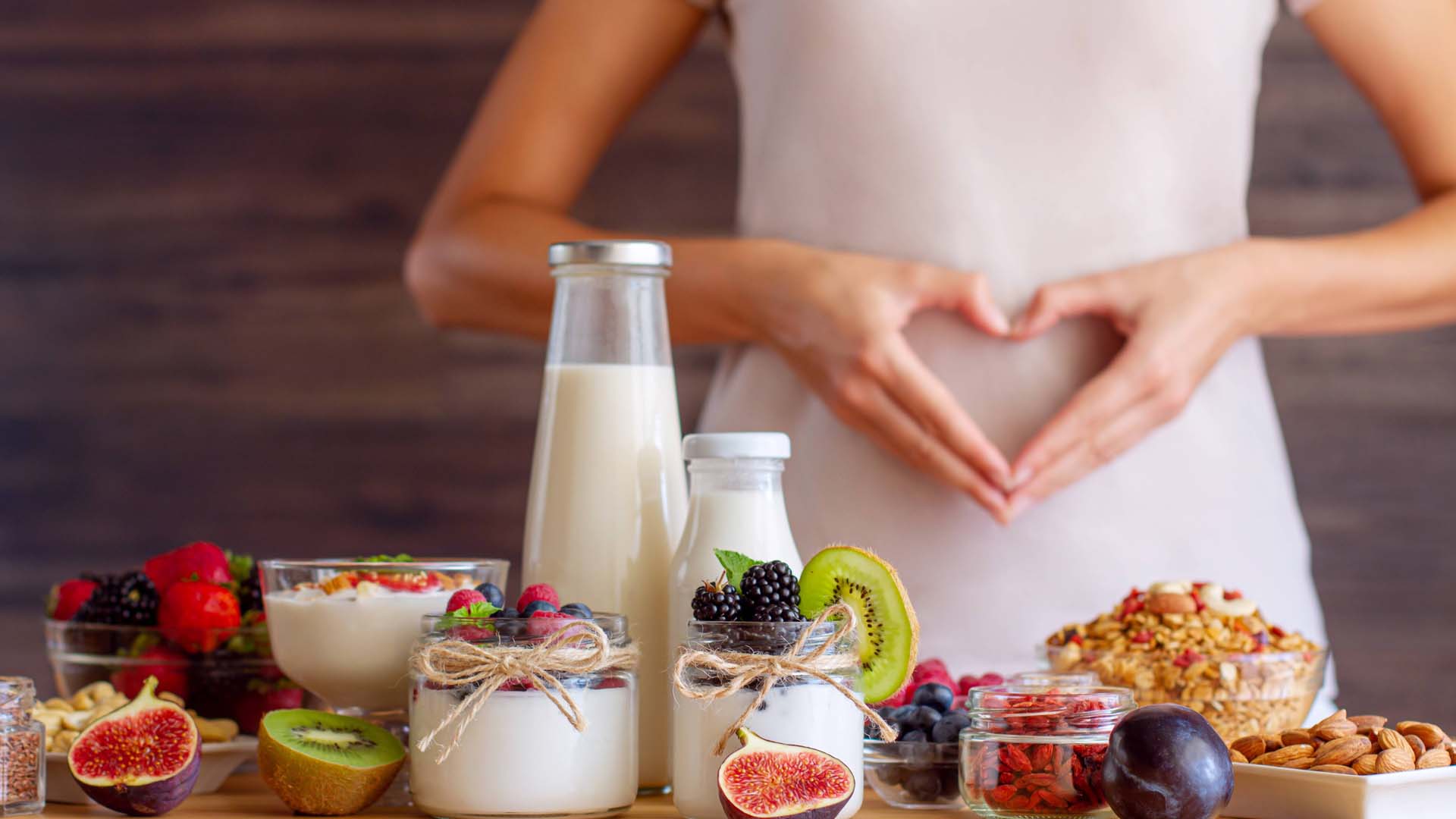
Looking after your gut health could be one of the biggest things that you can do for your overall health. Here are the best foods to keep your gut happy.
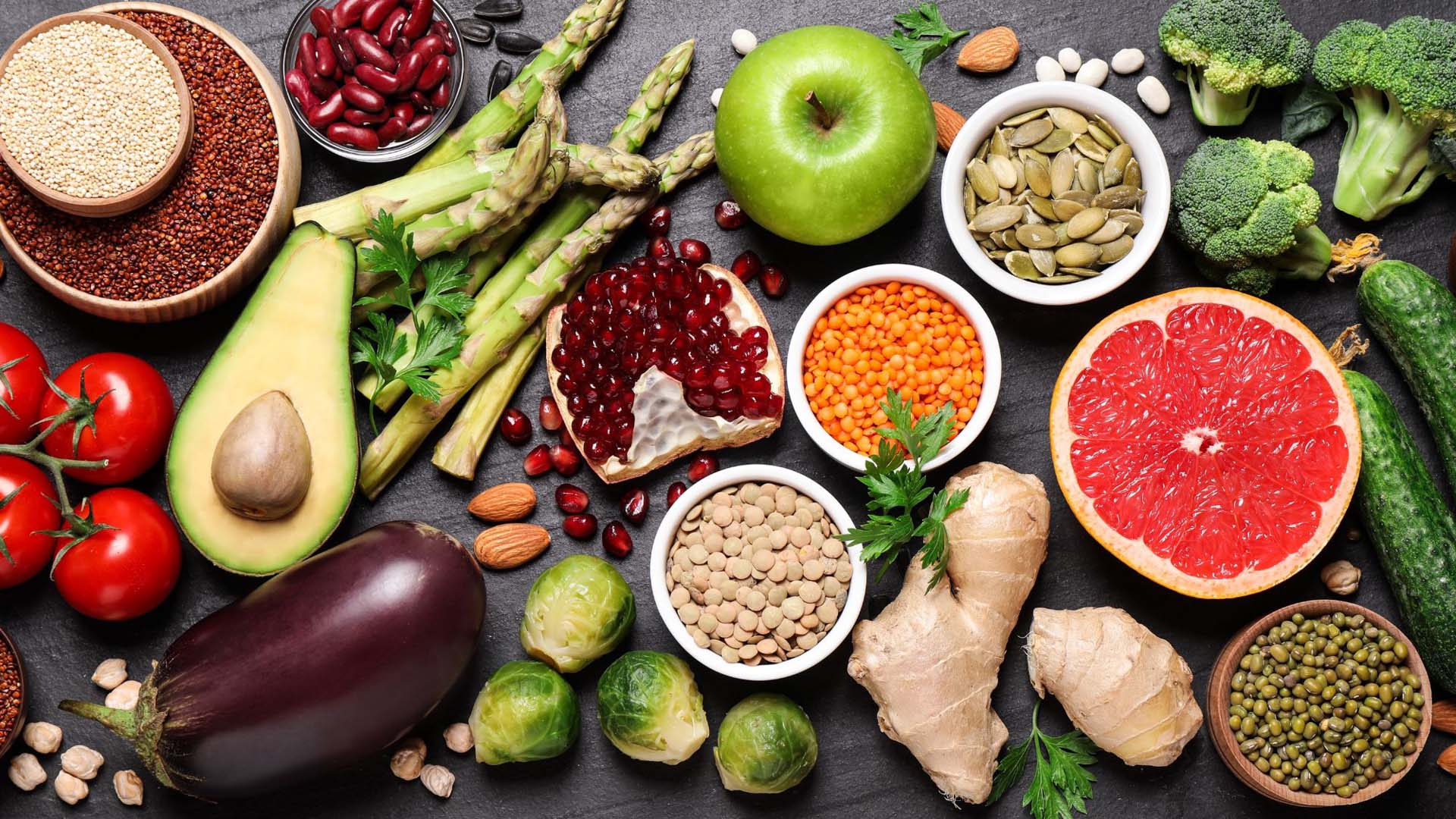
The foods that could help you live longer and protect against chronic illness.
